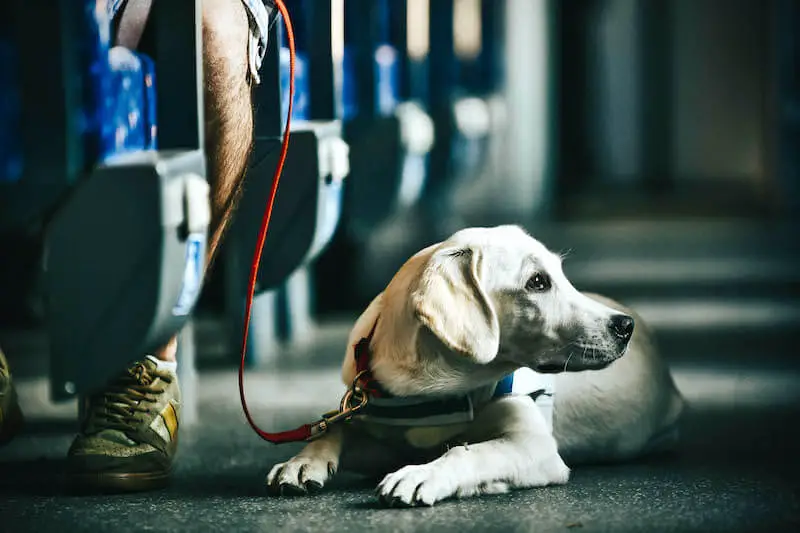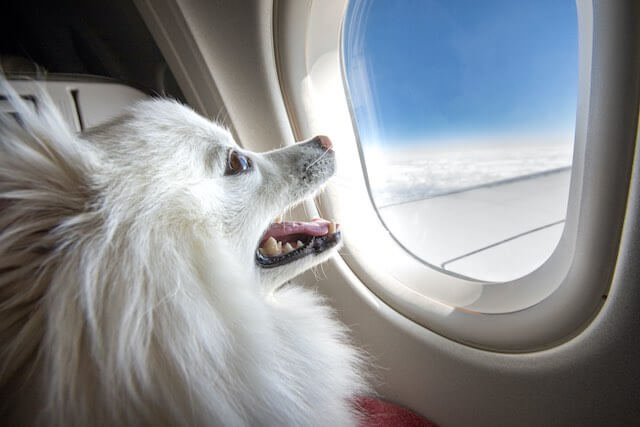The days of bringing one’s miniature horse, peacock, or squirrel onto a public aircraft are coming to an end.
After proposing to do away with the notion of “emotional support animals” on airplanes earlier this year, the Department of Transportation has now issued a final rule which stipulates that service animals on public flights can only be properly trained dogs.
DOT made the announcement yesterday and said the final rule, which will become effective 30 days after publication in the Federal Register, defines a service animal as a dog that is individually trained to do work or perform tasks for the benefit of a person with a disability and says that “airlines will no longer be required to recognize emotional support animals (ESAs) as service animals.”
It represents a sharp reversal from the agency’s 2003 guidance which provided broad room for interpretation of what could be considered an emotional support animal.
Additionally, the final rule does the following:
- Requires airlines to treat psychiatric service animals the same as other service animals;
- Allows airlines to require forms developed by DOT attesting to a service animal’s health, behavior and training, and if taking a long flight attesting that the service animal can either not relieve itself, or can relieve itself in a sanitary manner;
- Allows airlines to require individuals traveling with a service animal to provide the DOT service animal form(s) up to 48 hours in advance of the date of travel if the passenger’s reservation was made prior to that time;
- Prohibits airlines from requiring passengers with a disability who are traveling with a service animal to physically check-in at the airport instead of using the online check-in process;
- Allows airlines to require a person with a disability seeking to travel with a service animal to provide the DOT service animal form(s) at the passenger’s departure gate on the date of travel;
- Allows airlines to limit the number of service animals traveling with a single passenger with a disability to two service animals;
- Allows airlines to require a service animal to fit within its handler’s foot space on the aircraft;
- Allows airlines to require that service animals be harnessed, leashed, or tethered at all times in the airport and on the aircraft;
- Continues to allow airlines to refuse transportation to service animals that exhibit aggressive behavior and that pose a direct threat to the health or safety of others; and
- Continues to prohibit airlines from refusing to transport a service animal solely based on breed.
The agency said it received over 15,000 comments on its proposed rule and that this final rule “addresses concerns raised by individuals with disabilities, airlines, flight attendants, airports, other aviation transportation stakeholders, and other members of the public, regarding service animals on aircraft.”




